Navigating the sea of natural remedies for anxiety can be overwhelming, but one soothing anchor consistently emerges: green tea. Known not just for its delicate flavor, but also for its calming properties, green tea has become a go-to for those seeking a gentle reprieve from the clutches of anxiety.
So, why do countless individuals find solace in a cup of this verdant brew?
The answer lies in its unique blend of amino acids, specifically L-theanine, which promotes relaxation without drowsiness. As you sip on your steamy cup, imagine the L-theanine working its magic, easing your mind and buffering the effects of stress.
This isn't just a comforting ritual; it's a science-backed strategy for a calmer, more centered you. So, let's dive in and explore how green tea can be your ally against anxiety, one soothing sip at a time.
1. L-Theanine: The Relaxation Amino Acid
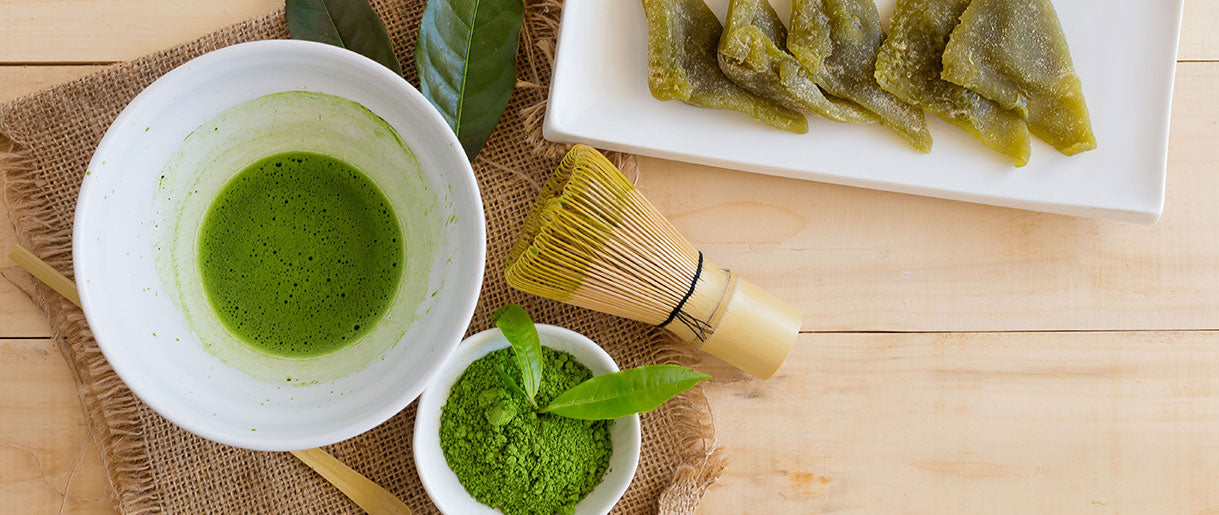
Ah, L-Theanine, the unsung hero hiding in your green tea leaves! This amino acid is like your chill friend who knows exactly how to calm you down without making you hit the snooze button. It is a perfect ally in the fight against major depressive disorder, helping with reduced anxiety and depression.
When you're sipping that comforting cup of green tea, it's L-Theanine working its magic to ease your mind (1). It's not just about feeling relaxed; it's about enjoying a calm, alert state that keeps you in the game without the stress:
- Anxiety Relief Superstar: Think of L-Theanine as your personal anxiety whisperer. It gently nudges your brain towards relaxation, helping to reduce anxiety levels (2) and making those moments of stress feel like a distant memory.
- Sleep Disorders' Nemesis: Struggling with tossing and turning at night? L-Theanine is here to help. Promoting relaxation can help combat sleep disorders, leading you towards a more restful and rejuvenating sleep.
- Mental Health Ally: This amino acid isn't just about calming you down at the moment. It's a long-term ally for your mental health, helping to improve focus and provide an anti-stress effect that's like a breath of fresh air for your brain. This makes green tea a perfect addition to a morning routine for mental health.
Next time you're enjoying a cup of green tea, give a little nod to L-Theanine for the calm and focus it brings into your life. It's not just about drinking green tea for the taste; it's about embracing a natural, effective way to ease your mind and boost your mental health.
2. Catechins: The Antioxidant Warriors
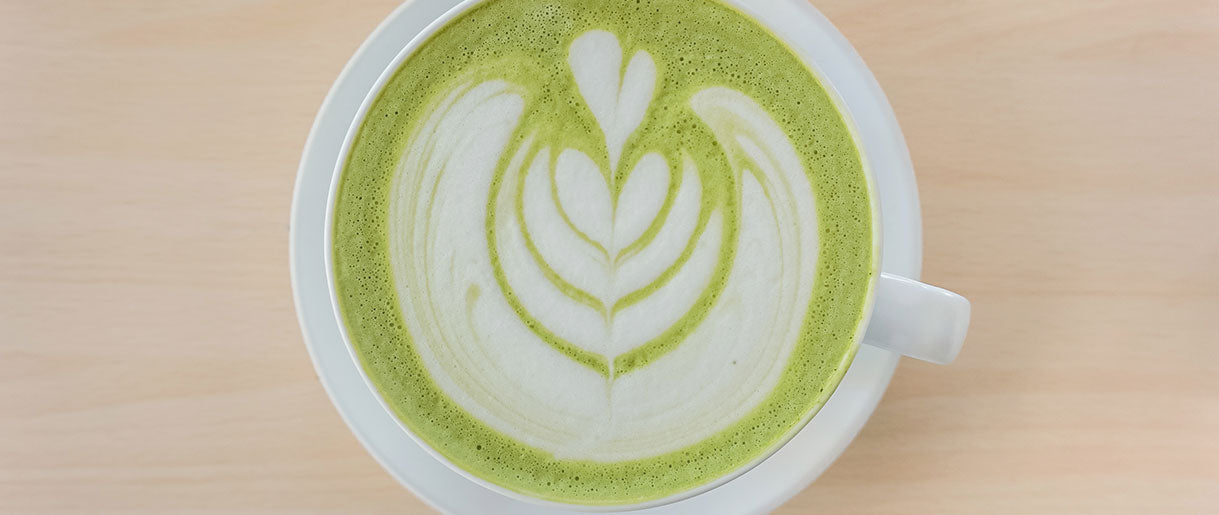
Catechins, ever heard of them? These antioxidant powerhouses in green tea extract are like your body's defense against stress and inflammation.
When you're enjoying your daily drinking of green tea, the catechins are busy at work, ensuring your anxiety levels take a back seat while your health takes the front row. They're not just about making your cup taste good; they're also about making you feel good.
- Combat Stress, Naturally: Catechins are like the ninjas of the antioxidant world, stealthily reducing inflammation and helping to reduce stress (3). They're all about naturally keeping you calm, cool, and collected.
- Mental Health Boosters: These antioxidants are serious about supporting your mental health (4). By fighting oxidative stress, they help maintain a balanced mind and can even offer support in conditions like bipolar disorder, making your journey toward well-being a little smoother.
- Heart Health Heroes: While busy giving anxiety the boot, catechins also look out for your heart (5). Drinking green tea with its rich catechin content is like giving your heart a little hug, promoting better cardiovascular health and overall inflammation reduction.
So next time you brew up a storm with your green tea leaves, remember that the catechins are turning each sip into a health-boosting experience. They're your allies in the fight against anxiety, your partners in promoting mental health, and your guardians keeping inflammation at bay.
3. Balanced Caffeine: The Gentle Pick-Me-Up
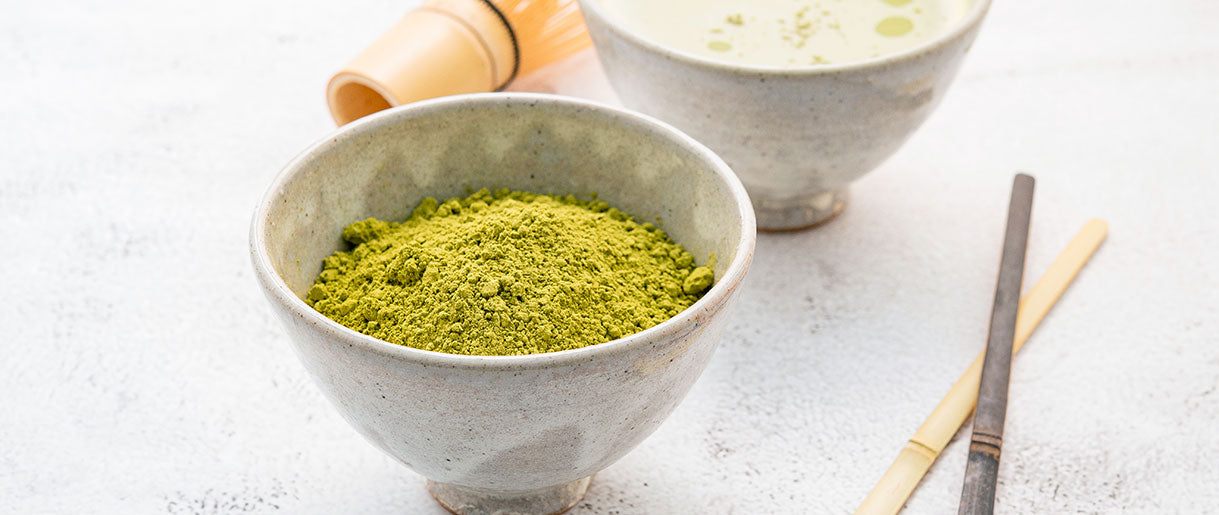
Caffeine and green tea? Yes, but it's not what you think. Green tea's caffeine is the cool, collected cousin to coffee's more intense buzz.
When drinking green tea, you're signing up for a more mellow, sustained energy boost that lifts you without letting you crash down. It's about getting that pick-me-up effect that sharpens your focus and combats stress, all while keeping those pesky jitters at bay.
This is caffeine with a gentle touch, perfectly balanced to keep your anxiety levels in check.
- Balanced Energy Boost: Green tea provides a lower caffeine content that's just enough to wake up your brain, giving you a smooth, sustained energy boost. The boost says, "Let's do this," not "Let's panic!"
- Synergy with L-Theanine: Green tea's caffeine doesn't go solo; it teams up with L-Theanine to enhance your focus and reduce anxiety. Together, they create a synergistic effect that leaves you feeling alert yet relaxed—a state of mindful energy.
- No More Jitters: Wave goodbye to the shaky hands and nervous energy you might get from coffee. The moderated caffeine in green tea ensures you get the anti-stress effect and mental clarity without worsening your anxiety or disrupting your well-being.
Next time you reach for a cup of green tea, remember that the caffeine within is there to be your ally, not your enemy. It's about enjoying that gentle lift, that nudge towards greater focus and energy, all while keeping your cool.
These benefits make green tea a perfect addition to a morning routine for energy. Even better, adding green tea to a morning routine for anxiety gives you peace of mind that takes you through the day.
Enhancing Your Green Tea Experience When Using it for anxiety
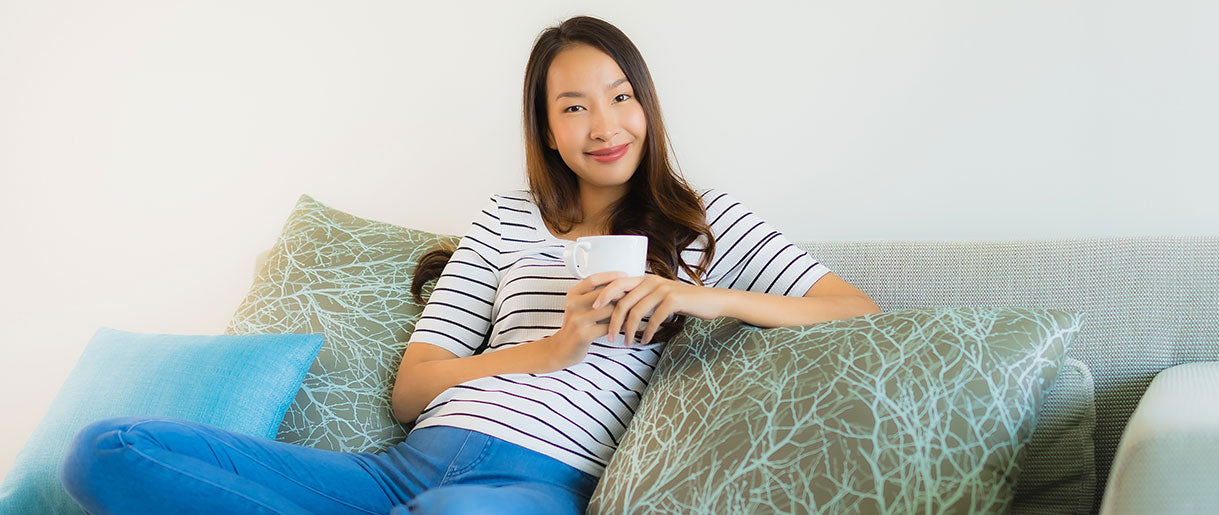
Ready to transform your green tea ritual into a sanctuary of serenity? It's not just about drinking green tea for its health benefits; it's about creating a holistic experience that soothes your soul and calms your mind.
Imagine coupling your cup with practices that amplify the calming effect, turning your tea time into a mini-retreat from the world's hustle and bustle.
Whether you're looking to reduce stress and anxiety, manage blood pressure, or find a moment of peace, enhancing your green tea experience is about nurturing your well-being from the inside out:
- Marry Meditation with Matcha: Pair your cup of matcha tea or your favorite green tea blend with a short meditation session. As the L-theanine amino acid in your tea helps to reduce anxiety and promote focus, let the benefits of meditation deepen that anti-stress effect, guiding you to a state of calm mindfulness.
- Yoga & Your Brew: Integrate your green tea ritual with a gentle yoga practice. The balanced caffeine in green tea makes it a perfect pre-yoga drink, enhancing flexibility and focus while yoga's movements help lower stress and blood pressure.
- Herbal Harmony: Experiment with infusions by adding herbal teas known for their calming properties—like lemon balm, chamomile, or lavender—to your green tea. These herbal buddies can help reduce anxiety, soothe an upset stomach, and even help you lose weight, all while enhancing the natural anti-stress effect of your brew.
FAQs About Green Tea Anxiety Benefits
When Is The Best Time To Drink Green Tea For Anxiety Relief?
The best time to drink green tea for anxiety relief is in the morning or early afternoon. Consuming it early in the day allows you to benefit from the calming effects of L-theanine and the moderate caffeine content without interfering with your sleep cycle.
Avoid drinking green tea late in the evening, as the caffeine might disrupt your sleep. Also, consider having it between meals to avoid any potential upset stomach and to maximize absorption of its beneficial compounds.
How Much Green Tea Should I Drink To Reduce Anxiety?
Drinking about 2-3 cups of green tea daily is generally recommended to reduce anxiety. This amount allows you to get a sufficient dose of L-theanine and other beneficial compounds without overdoing the caffeine, which can sometimes increase anxiety if consumed in large quantities.
Always listen to your body and adjust the amount based on how you feel, as individual tolerance to caffeine and sensitivity to the effects of L-theanine can vary. If you're new to green tea or sensitive to caffeine, start with one cup and gradually increase as needed.
Can Pregnant Or Breastfeeding Individuals Consume Green Tea For Anxiety?
Pregnant or breastfeeding individuals should be cautious about consuming green tea for anxiety. While green tea has many benefits, it also contains caffeine, which is recommended to be limited during pregnancy and breastfeeding.
High levels of caffeine can pose risks such as low birth weight and other complications during pregnancy, and it can also be passed to the baby through breast milk, potentially affecting the infant's sleep and behavior.
Generally, it's advised that pregnant individuals limit caffeine intake to less than 200mg per day (about 2 cups of green tea), and breastfeeding individuals should also moderate their intake to avoid affecting the baby.
Key Takeaways
As we've journeyed through the tranquil world of green tea, we've uncovered a beverage and a holistic remedy, a sip of serenity amid life's storms. From the soothing embrace of L-theanine to the gentle energy boost from caffeine, each cup offers a natural path to calmness and clarity.
But the beauty of green tea doesn't just lie in its leaves; it's also in the personal experience, the quiet moments of reflection, and the gentle relief it brings to our bustling lives. Whether navigating the highs and lows of daily stress or seeking a natural ally in your journey toward mental well-being, green tea is a testament to the power of nature's remedies.
As you set down your cup and carry on with your day, remember that the path to tranquility is as much about the journey as the destination. So brew, sip, and savor the taste and the peace with every cup of green tea.
And now, we turn the conversation over to you. Have you experienced the calming effects of green tea? Do you have a favorite time or way to enjoy it? Share your stories, tips, and questions in the comments below.
References
- Effects of L-Theanine Administration on Stress-Related Symptoms and Cognitive Functions in Healthy Adults: A Randomized Controlled Trial, (1), https://www.ncbi.nlm.nih.gov/pmc/articles/PMC6836118/
- A Randomized, Triple-Blind, Placebo-Controlled, Crossover Study to Investigate the Efficacy of a Single Dose of AlphaWave® L-Theanine on Stress in a Healthy Adult Population, (2), https://link.springer.com/article/10.1007/s40120-021-00284-x
- Chronic Administration of Catechin Decreases Depression and Anxiety-Like Behaviors in a Rat Model Using Chronic Corticosterone Injections, (3), https://www.ncbi.nlm.nih.gov/pmc/articles/PMC3819905/
- Effect of Daily Intake of Green Tea Catechins on Cognitive Function in Middle-Aged and Older Subjects: A Randomized, Placebo-Controlled Study, (4), https://www.ncbi.nlm.nih.gov/pmc/articles/PMC7570631/
- Preventive Effects of Catechins on Cardiovascular Disease, (5), https://www.ncbi.nlm.nih.gov/pmc/articles/PMC6273873/






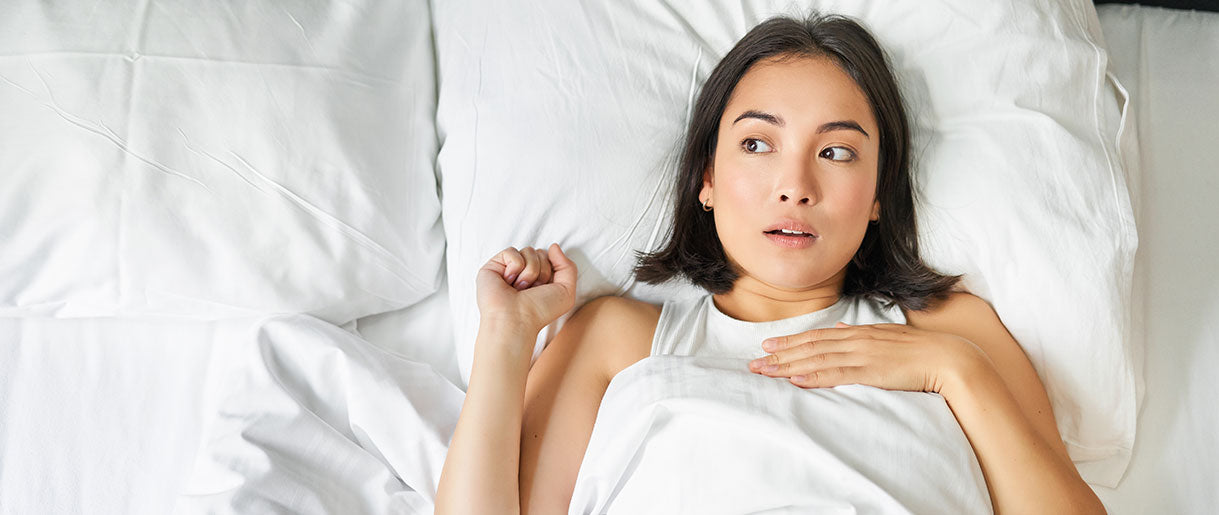
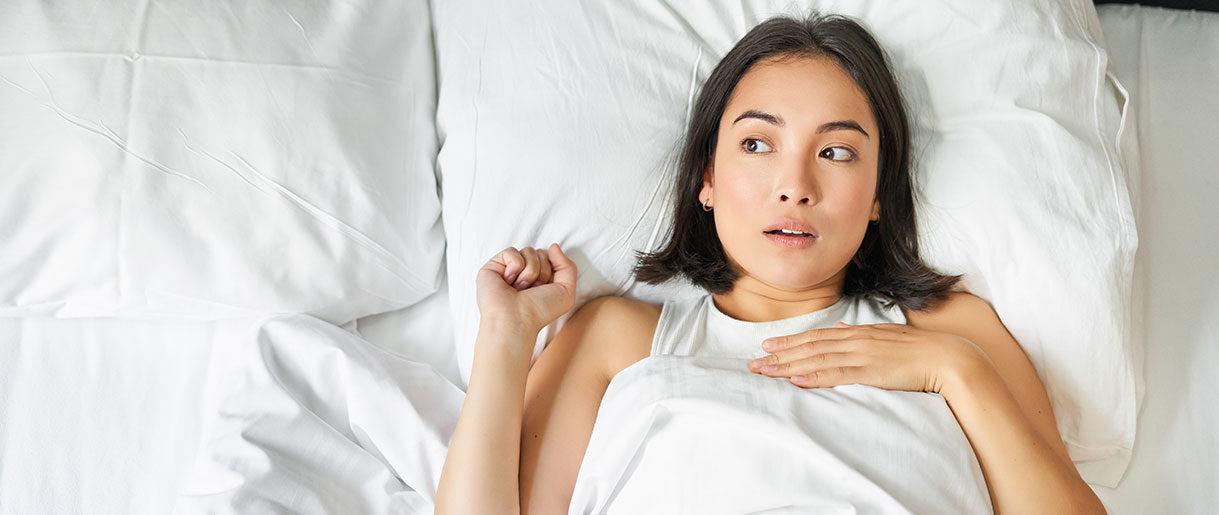
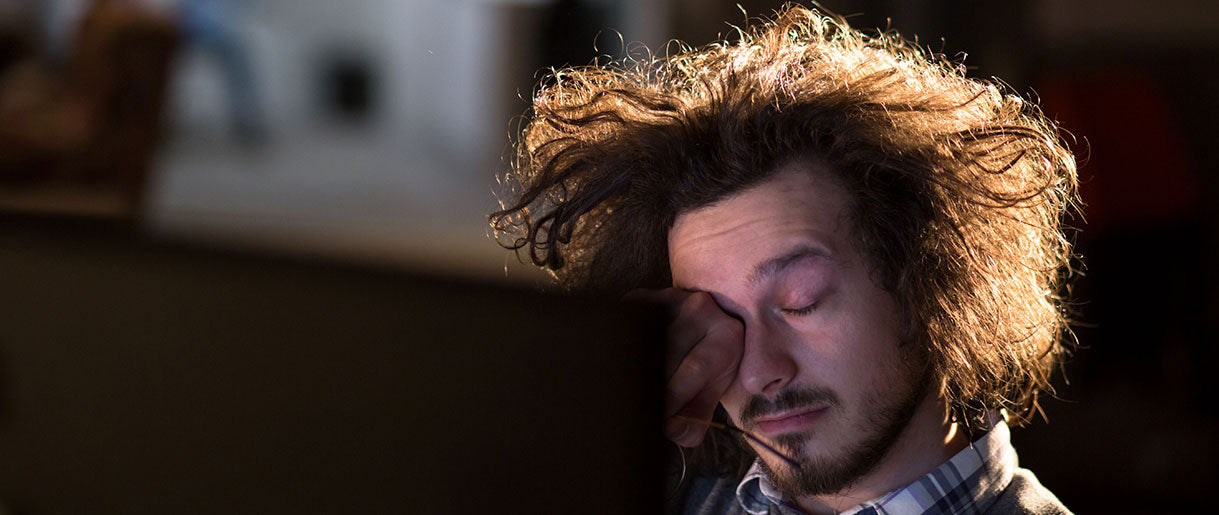
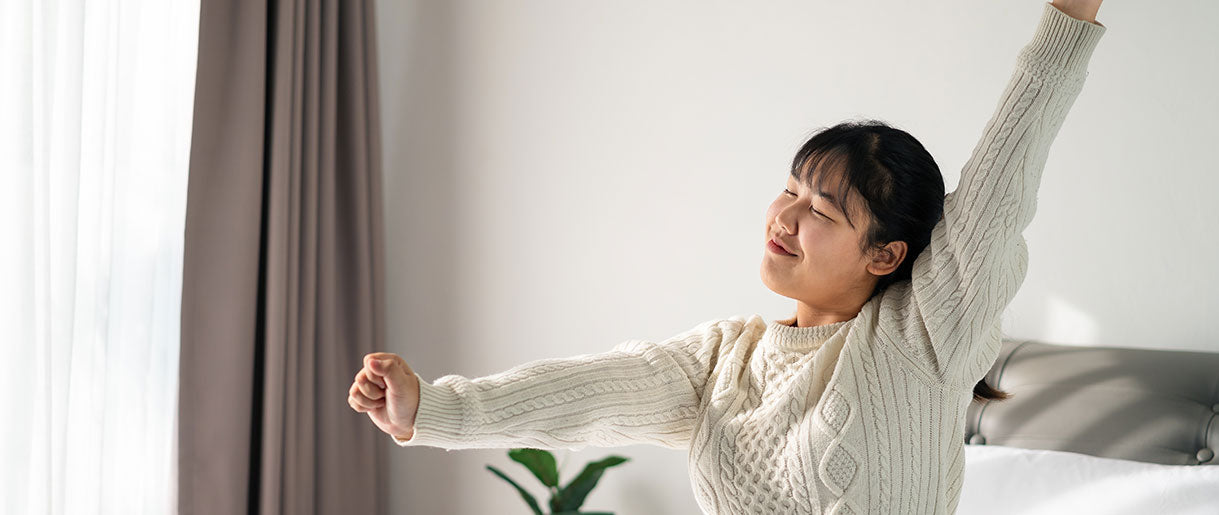
Let Us Know Your Comments